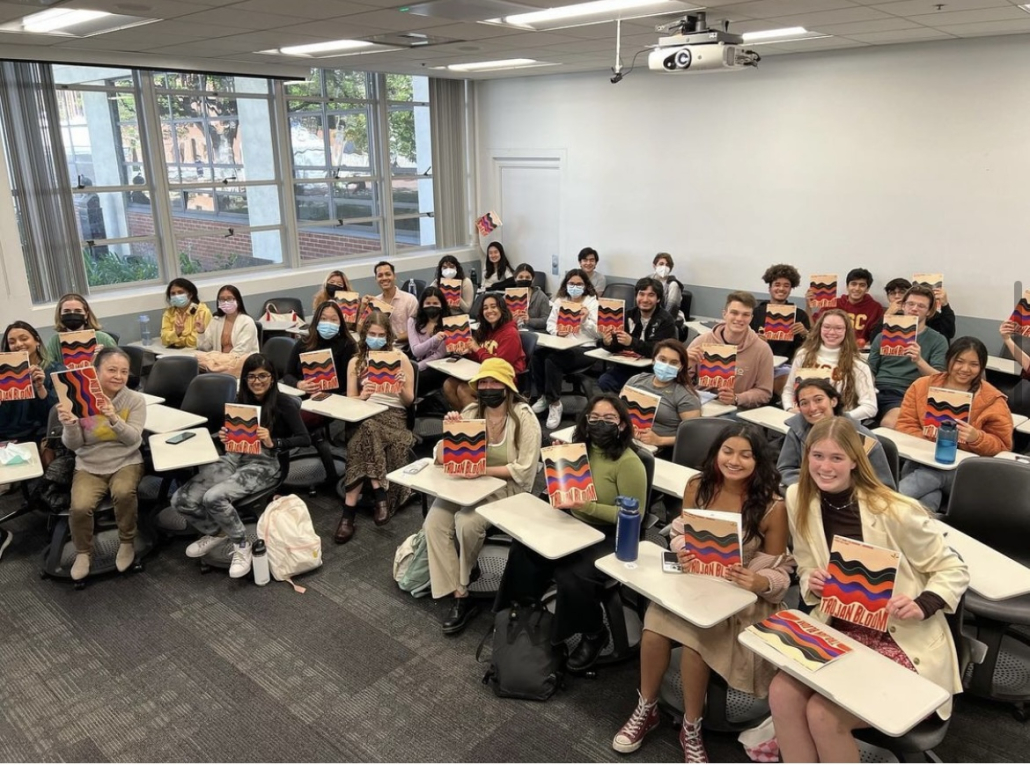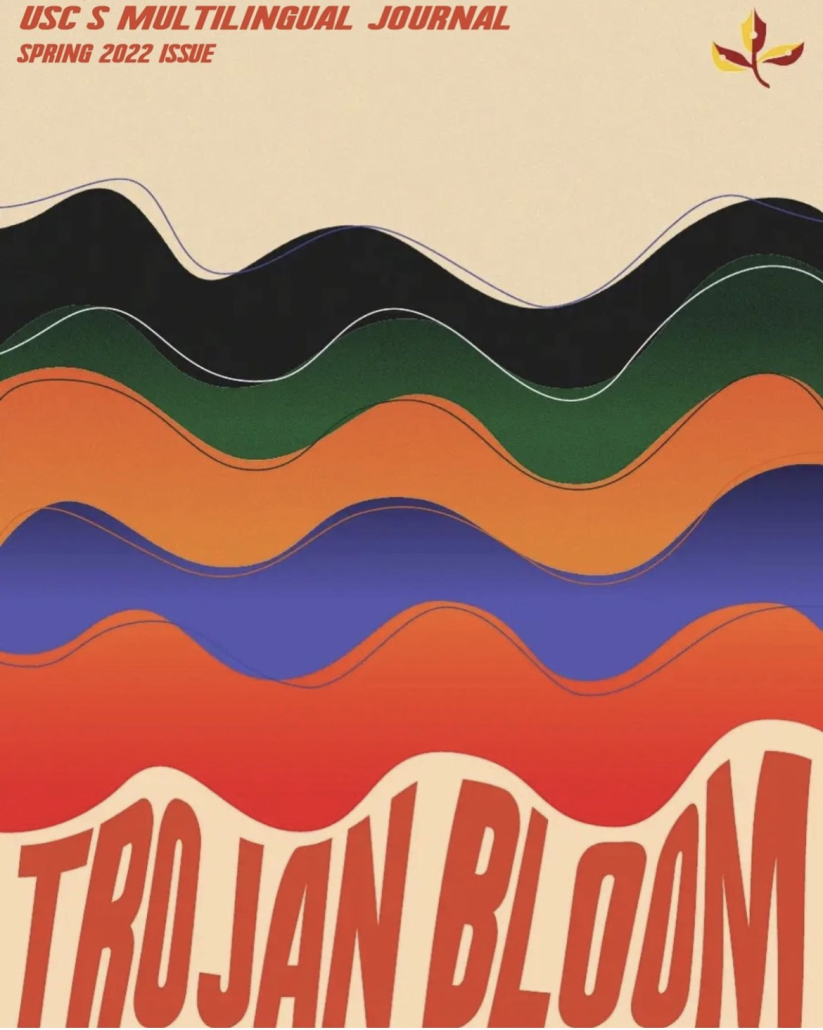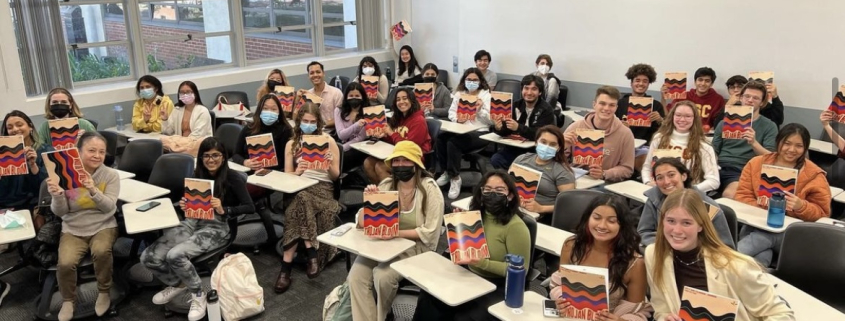Multilingual journal incorporates Armenian guest language

A fixture of the USC Languages department on campus since last November, the Trojan Bloom multilingual literary journal aims to provide a creative outlet to writers in non-English languages taught at USC — and expand the journal to cover more languages spoken in the wider campus community.
Funded by the USC Center for Language and Culture, Trojan Bloom aims to bring together those interested in non-English creative writing and language learning by compiling a variety of poetry, prose and other miscellaneous pieces, and represents the 15 languages that are taught in the campus department. Now in their second semester-wide issue, they will feature a guest language program that will represent languages that may not have a USC course, but that are spoken frequently — for the fall semester, this is Armenian.
To produce Armenian as the guest language for the semester’s journal, Trojan Bloom is in collaboration with the USC Institute of Armenian Studies, which will assist with editing and proofreading submissions. Editor-in-chief Tania Apshankar, a senior studying creative writing, said the decision to add Armenian for the fall was a step to reflect a well-established Los Angeles language — a city home to over 200,000 Armenians — and to provide a platform during a difficult period in modern Armenian history.
“First, we wanted to include languages which reflect the community in L.A., and Armenian is a language that’s spoken a lot generally … as well as [due to] the unrest going on,” Apshankar said. “Unfortunately, there’s been [a] war situation with Azerbaijan, and we just wanted to provide a platform for people to express themselves.”
For Shushan Karapetian, deputy director of the USC Institute of Armenian Studies and guest editor for Trojan Bloom, ensuring that her students’ voices were heard was paramount. Her expertise lies in the study of languages outside of their native contexts, and she encouraged her students to submit work that spoke to the rich linguistics and cultural heritage of Armenia that honored all parts of their identities.
“Thematically, these pieces will kind of reflect the crisis that so many of these students are living [through], regardless of whether or not they directly talk about the war right now. I think that kind of diasporic angst and existential anxiety will come out [in students’ works] whether it’s about language, whether it’s about the state of Armenia being in danger or just of Armenian identity in general flux,” Karapetian said.

One student working to meet this intent is Mariam Manukyan, a senior majoring in political science and contributor to the journal, who said she believes writing in the Armenian language allows her to better articulate her complex feelings. Manukyan’s work centers on her existential anxieties as she explores the political and ethnic tensions in Armenia, and her pieces include both formal and informal Armenian, which she said enables her to bring more of herself to the page.
“There’s some stuff regarding [my] emotions that I can only speak in Armenian because that’s what’s close to me,” Manukyan said.
Writer Merri Kuyumjian, a senior majoring in international relations, said she was excited to have found a platform through Trojan Bloom and appreciated the opportunity to see the poem she wrote and translated with her grandfather get published.
“To be able to celebrate our culture through our language and our literature is just really awesome, and that we get to share it with non-Armenians is even better … it’s kind of like USC is giving us a voice and it almost makes us feel like, ‘Yeah, we do matter on campus, our culture and our heritage does matter on campus,’” Kuyumjian said. “To have that experience with my grandpa [too] was super awesome.”
Trojan Bloom will be accepting submissions until Oct. 9 and accepts works in Arabic, Chinese, French, German, Classical Greek, Hebrew, Italian, Spanish, Japanese, Korean, Latin, Persian, Polish, Russian — and Armenian.

